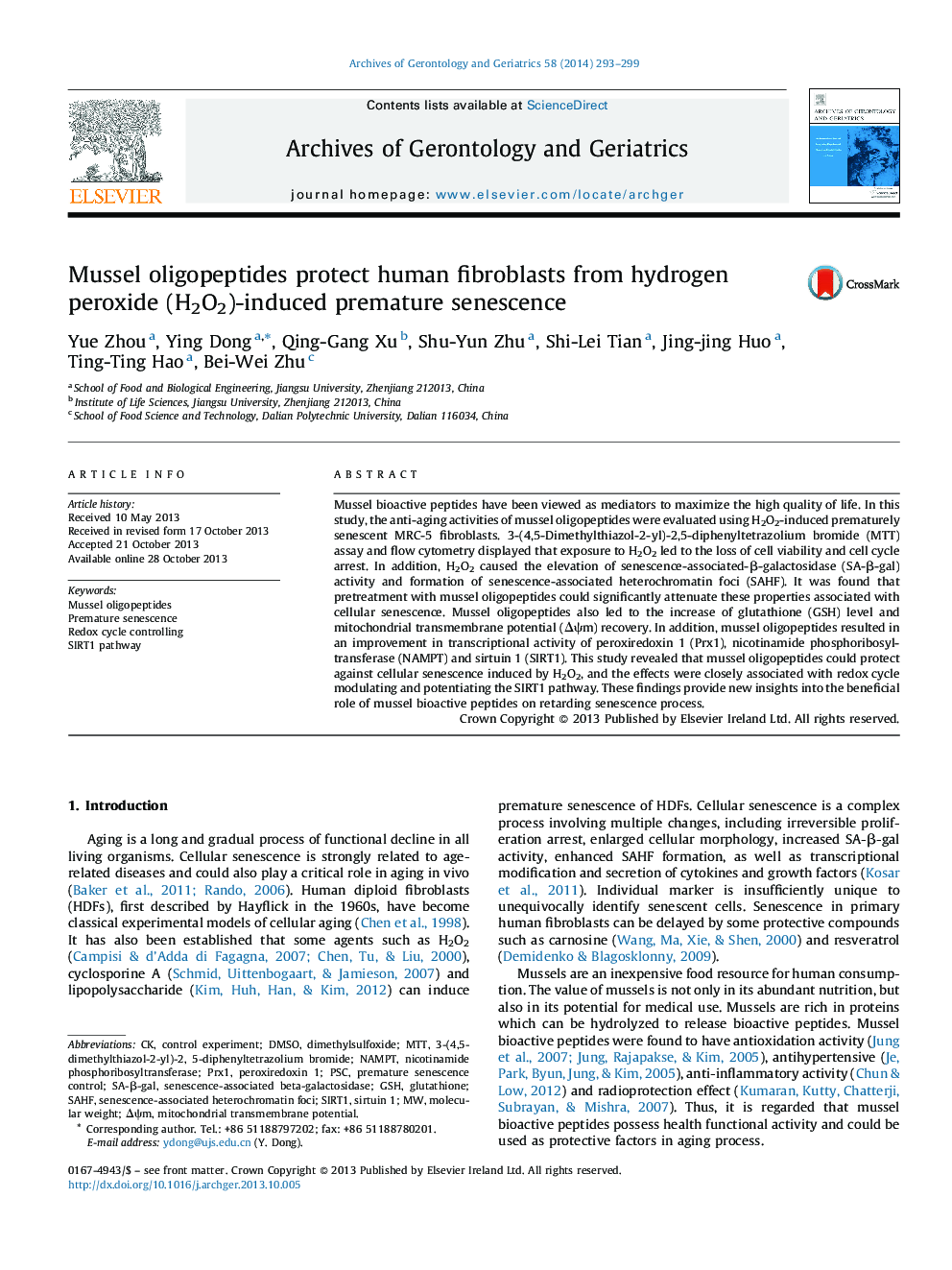| Article ID | Journal | Published Year | Pages | File Type |
|---|---|---|---|---|
| 1903091 | Archives of Gerontology and Geriatrics | 2014 | 7 Pages |
Abstract
Mussel bioactive peptides have been viewed as mediators to maximize the high quality of life. In this study, the anti-aging activities of mussel oligopeptides were evaluated using H2O2-induced prematurely senescent MRC-5 fibroblasts. 3-(4,5-Dimethylthiazol-2-yl)-2,5-diphenyltetrazolium bromide (MTT) assay and flow cytometry displayed that exposure to H2O2 led to the loss of cell viability and cell cycle arrest. In addition, H2O2 caused the elevation of senescence-associated-β-galactosidase (SA-β-gal) activity and formation of senescence-associated heterochromatin foci (SAHF). It was found that pretreatment with mussel oligopeptides could significantly attenuate these properties associated with cellular senescence. Mussel oligopeptides also led to the increase of glutathione (GSH) level and mitochondrial transmembrane potential (ÎÏm) recovery. In addition, mussel oligopeptides resulted in an improvement in transcriptional activity of peroxiredoxin 1 (Prx1), nicotinamide phosphoribosyltransferase (NAMPT) and sirtuin 1 (SIRT1). This study revealed that mussel oligopeptides could protect against cellular senescence induced by H2O2, and the effects were closely associated with redox cycle modulating and potentiating the SIRT1 pathway. These findings provide new insights into the beneficial role of mussel bioactive peptides on retarding senescence process.
Keywords
Sirt13-(4,5-dimethylthiazol-2-yl)-2, 5-diphenyltetrazolium bromidePRX1SAHFGSHPSCΔΨmNAMPTsirtuin 1SA-β-galDMSOMTTsenescence-associated beta-galactosidaseDimethylsulfoxidenicotinamide phosphoribosyltransferaseMolecular weightMitochondrial transmembrane potentialPeroxiredoxin 1Premature senescencesenescence-associated heterochromatin fociGlutathione
Related Topics
Life Sciences
Biochemistry, Genetics and Molecular Biology
Ageing
Authors
Yue Zhou, Ying Dong, Qing-Gang Xu, Shu-Yun Zhu, Shi-Lei Tian, Jing-jing Huo, Ting-Ting Hao, Bei-Wei Zhu,
